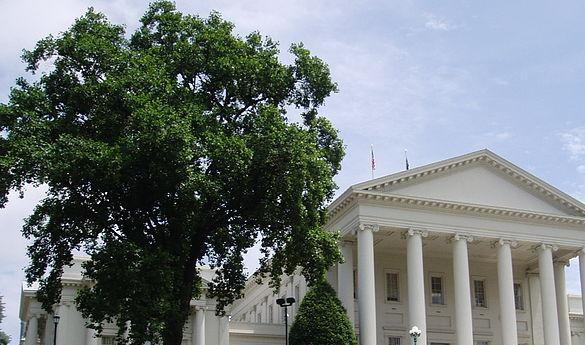Editor’s Blog: Top higher education bills to watch in the upcoming General Assembly session
The Virginia General Assembly will convene its 2014 legislative session on January 8th. The session, which only lasts until the beginning of March, is a whirlwind of policy debate that affects all Virginians. As a public university, George Mason University is heavily influenced by decisions made by state policymakers. This year, there are a number of bills that could impact Mason and its students. Here is a brief roundup of some of those bills:
1. Restrictions on out-of-state enrollment
There are currently three bills in the General Assembly that places a limit on the number of out-of-state students a public university can enroll (here, here and here). Bills proposed by Delegate David Ramadan, Delegate Tim Hugo, and Delegate Barbara Comstock say that at least 75 percent of public university's undergraduate student body must be in-state students. Currently, there are four public universities that fall below that threshold, Mason not included.
Last week, I wrote that while this bill might create more space for in-state students, it would most likely lead to higher tuition for Virginians.
2. Restrictions on university spending
Another bill proposed by Del. Ramadan places a limit on how public universities can spend the revenue they obtain from in-state tuition. 65 percent of funds received from in-state undergraduate tuition have to be used for undergraduate instructional expenses. Likewise, 65 percent of funds from the state are dedicated to undergraduate costs.
“The board of visitors or other governing body of every public institution of higher education shall ensure that all funds received from in-state undergraduate tuition are dedicated to the purpose of undergraduate education, that 65 percent of such funds are dedicated to undergraduate instructional expenses, and that 65 percent of all funds received from the Commonwealth for the education and general programs of instruction, academic support, student services, institutional support, and operation and maintenance of the physical plant are dedicated to undergraduate instructional expenses.”
3. Creation on mental health program and online assessment and support
A bill proposed Del. Patrick Hope (D - Arlington) would direct all four-year public universities to create a website that leads students to the institution’s mental health resource page, create an online interactive module on mental health and an online assessment to test students’ knowledge of the module.
“The bill also requires the governing board of each public institution of higher education to develop and implement policies that advise students, faculty, and staff, including residence hall staff, of the proper procedures for identifying and addressing the needs of students exhibiting symptoms of depression, anxiety, or self-destructive behavior in addition to suicidal tendencies or behavior as required in current law.”
4. Restrictions on student speech
A bill proposed by Del. L. Scott Lingamfelter (R – Woodbridge) blocks higher education institutions from placing restrictions on student speech on campus.
“Prohibits public institutions of higher education from imposing restrictions on the time, place, and manner of student speech that occurs in the outdoor areas of the institution's campus and is protected by the First Amendment to the United States Constitution unless the restrictions (i) are reasonable, (ii) are justified without reference to the content of the regulated speech, (iii) are narrowly tailored to serve a significant governmental interest, and (iv) leave open ample alternative channels for communication of the information.”
5. Criteria for obtaining in-state status
There are currently two bills proposed in the House of Delegates that establish new criteria for being considered an in-state student and therefore being able to pay in-state tuition. Both bills (here and here) say that a student is “in-state” if he or she has attended a Virginia high school for the past three years, has graduated or obtained a GED from a Virginia high school, and he or she (or in the case of a dependent – their parent) has filed state income taxes for past three years.
6. Student athlete discipline policies
Del. Steven Landes (R – Augusta) proposed a bill that would require all board of visitors to adopt specific discipline policies for student athletes participating in varsity sports.

